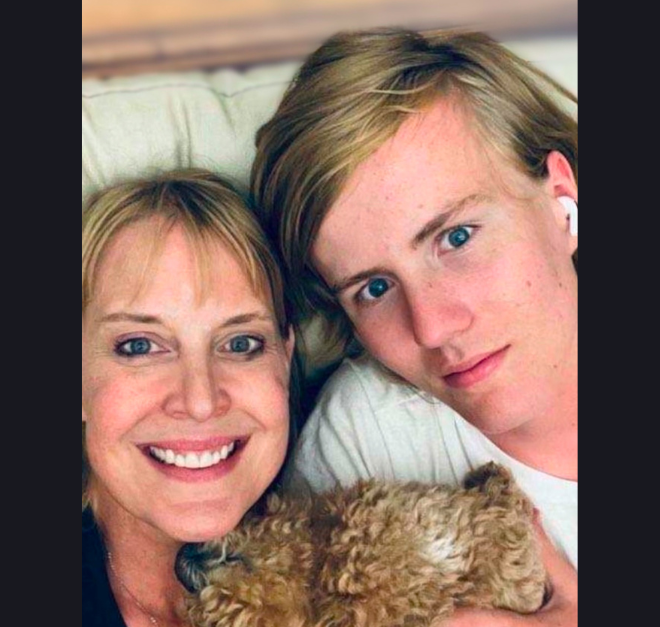As a former college football player, attorney Grant Gellatly knows a thing or two about navigating high-pressure competition and preparing for big moments with a healthy dose of hard work.
So, when law school called, Grant answered enthusiastically, bringing with him a background of grit and a strong work ethic.
Grant received his Bachelor of Science degree from Cornell University, where he served as a captain on the school’s Division I football team. He obtained his Juris Doctor degree from the University of Washington School of Law in 2017.
Now, as one of the newer members of Luvera Law Firm, Grant is busy with cases seeking justice for a victim of an allegedly unsafe ski jump and accountability for those pursuing medical malpractice claims.
Learn more about Grant’s legal journey below.
When did you decide you wanted to be an attorney?
GG: There’s a pretty concrete moment in time: my sophomore year of college. Up until that point, my first love was football. Then, I took a labor law class with Professor Gold, who was known to be extremely difficult, and I found that I loved the challenge of that class. Learning about the law was so intriguing, and it brought out the competitive energy that I had only found in football before. At that time, I decided I wanted to go to law school.
You’re a newer member of the Luvera Law Firm team – what interested you about joining the firm, and what do you enjoy the most about your current work?
GG: My father is at the firm, which is part of why I’m here, but the chance to work with and learn from the lawyers at the firm … well, I didn’t need much more reason than that. Mr. Luvera’s legacy speaks for itself, and the firm’s continued reputation demonstrates the capability of the attorneys and staff here. I could not pass up the opportunity to be part of that.
I also had the chance to work at the firm for a summer during law school where I was exposed to the firm’s culture and attitude. Not only was everyone talented, but each person was willing to go out of his or her way to help me. The firm is very team-oriented, which was an instant draw.
Right now, I enjoy taking depositions, getting into the courtroom and becoming more involved in trial practice. These opportunities always offer a great learning experience, and provide me with a new perspective or insight into how to develop my own litigation style and strategy.
What was one of the most difficult parts of the transition from law school to law firm? What was the easiest?
GG: Law school teaches you how to read, research, and understand the law, but it does not really teach you many of the day-to-day tasks like filing motions, interviewing witnesses, preparing for depositions, drafting discovery, finding experts or other similar tasks that require more than just an understanding of the law. I was able to take several advocacy and deposition classes which covered some of these areas, but when you get into real practice and start doing that on a weekly basis, that can be a big transition. Fortunately, my colleagues helped me (and continue to help me) become proficient at these tasks.
Nothing is easy! I like to think there is always room to improve. It’s a constant process to get better, so I’m always trying to evaluate how I can hone my skills.
What cases do you most look forward to working on?
GG: Right now, I’ve been heavily involved in a lawsuit against a regional ski area. I grew up skiing, but now I’m learning much more than I ever knew about the sport and the industry. At Luvera Law Firm, one of our specialties is medical malpractice cases, and I find those are quite interesting. They present a chance to learn more about the intricacies of medicine, which is such a difficult yet fascinating subject. That said, I find most all the work we do is interesting in some way; every case presents its own unique challenges. At the end of the day, I want to work hard at whatever they throw at me.
We learned that you were a football player in college at Cornell – are there any lessons you’ve taken from the field into your profession?
GG: I’ve learned that hard work and dedication are required on a daily basis. At Cornell, you might spend a couple thousand hours practicing and training for what is about 30 hours of game time. You know that you have to put in that effort and grind through the tough times because it usually comes down to one big moment. I find that to be similar in our practice. Whether it’s a football game or a trial, the work you put in beforehand is critical for a favorable outcome.
Outside of work, what are some of your interests or hobbies?
GG: Obviously, football and sports are a big part of my life. I go to the University of Washington football games whenever I can, and have been back for Cornell games as well, though I would like to get back there more often. During the summer, I really enjoy golfing. Other than that, my girlfriend and I like to explore the Seattle restaurant scene. One of my favorites has always been Joule in Fremont, and we just moved to the South Lake Union area, so now we are taking advantage of being so close to a number of great spots.







